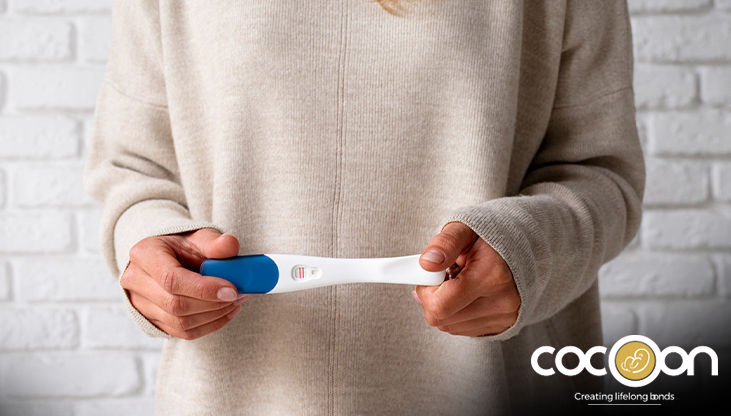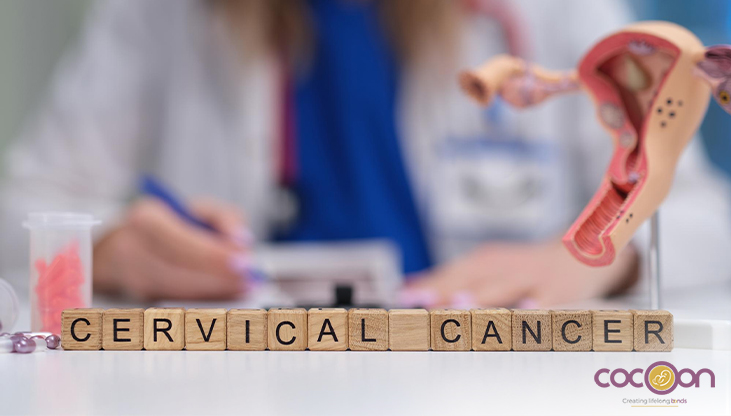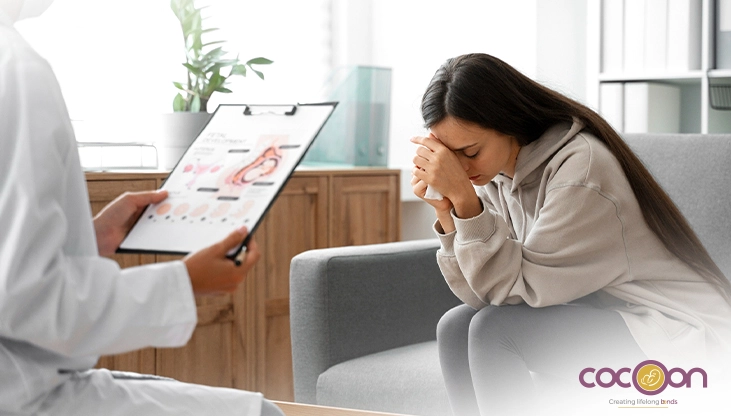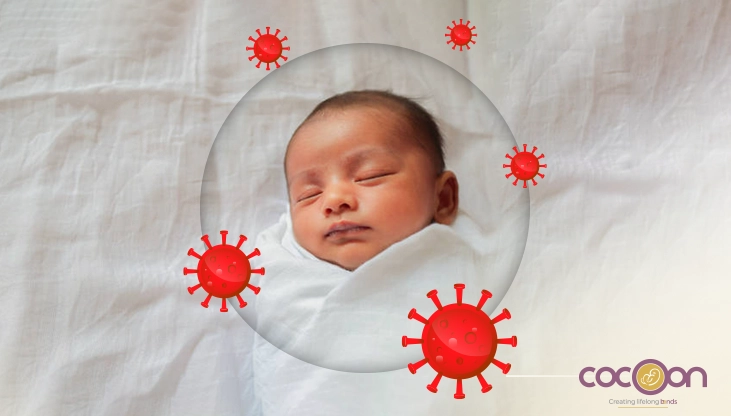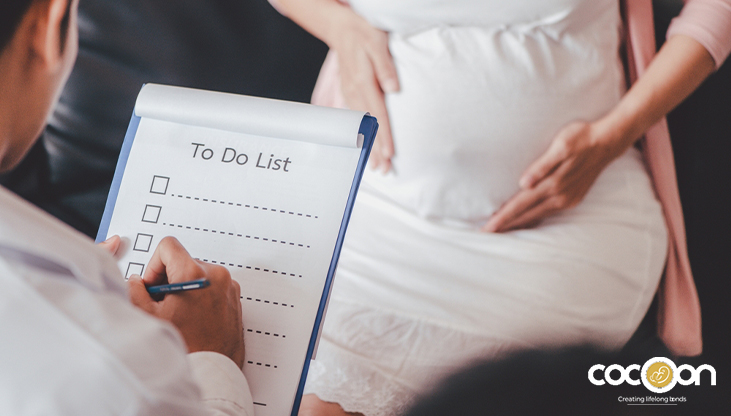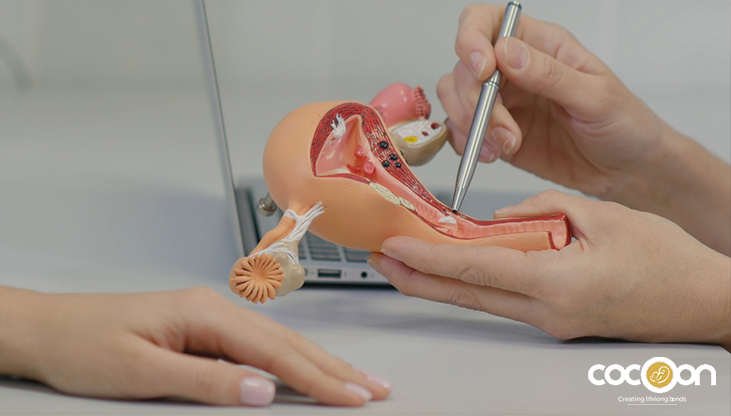Pregnancy is an exciting journey, and the first month is when it all begins. You might start noticing small changes in your body, like feeling more tired than usual or having a craving for something you didn’t even like before. These little signs are your body’s way of saying, “A new life is growing!”
If you’re wondering, “Could I be pregnant?” or simply curious about what to expect, understanding the common early pregnancy symptoms can provide clarity. These changes in your body are often the first signs of an incredible journey ahead, marking the beginning of a new chapter in your life.
What Are Early Pregnancy Symptoms?
In the first month of pregnancy, your body starts preparing for the baby’s development, which can lead to early symptoms of pregnancy, sometimes even before you miss a period. From fatigue to nausea, your body provides several clues. However, not everyone experiences the same symptoms, and some might be so mild that you may not notice them right away.
Common Symptoms of Pregnancy in the First Month
Here are the most common symptoms of pregnancy in the first month:
1. Missed Period
One of the most obvious early signs of pregnancy is a missed period. If your menstrual cycle is regular and you’ve skipped your period, it’s worth taking a pregnancy test.
2. Fatigue
Feeling unusually tired? Early pregnancy can cause a surge in progesterone, which may make you feel more exhausted than usual. Rest and balanced nutrition can help combat this fatigue.
3. Nausea and Morning Sickness
Nausea, with or without vomiting, is one of the classic early symptoms of pregnancy. It can happen at any time of day and is usually caused by hormonal changes. Eating small meals and ginger tea can provide relief.
4. Tender or Swollen Breasts
Your breasts may feel tender, swollen, or heavier than usual due to increased hormones. This is a common sign of pregnancy often noticeable in the early stages.
5. Frequent Urination
In the early weeks, hormonal changes can increase blood flow to your kidneys, leading to frequent use of the bathroom.
6. Mood Swings
Emotional ups and downs are common during the first month, driven by fluctuating hormone levels. You might feel happy one moment and overwhelmed the next.
7. Light Spotting or Implantation Bleeding
Some women experience light spotting, known as implantation bleeding, as the fertilized egg attaches to the uterus. It usually occurs around the time your period would have been due but is lighter and shorter.
8. Cramping
Mild cramps similar to period pain can occur as your uterus begins to expand to accommodate your growing baby.
9. Food Aversions or Cravings
You may suddenly dislike foods you usually enjoy or crave unusual combinations. These changes in appetite are among the early signs of pregnancy.
10. Headaches and Dizziness
Hormonal changes and increased blood flow can lead to mild headaches or dizziness during the first month. Staying hydrated and eating regularly can help.
Why Do These Symptoms Happen?
The early symptoms of pregnancy are mainly caused by hormonal changes. Hormones like progesterone and human chorionic gonadotropin (hCG) play a key role in preparing your body for the baby. While these changes are necessary, they can trigger physical and emotional reactions, leading to the signs of pregnancy you experience.
When to Take a Pregnancy Test
If you’ve noticed some of these early pregnancy symptoms and suspect you might be pregnant, the best way to confirm is to take a pregnancy test. Most home pregnancy tests can detect hCG levels about a week after a missed period. For the most accurate results, follow the instructions carefully and test with the first urine of the day.
Tips to Manage Early Pregnancy Symptoms
The first month of pregnancy can be challenging, so prioritize rest to combat fatigue and stay energized.
Eat small, frequent meals to manage nausea and maintain energy levels, and stay hydrated to avoid dizziness and support your baby’s development.
Take prenatal vitamins as recommended to ensure your baby gets essential nutrients. Avoid triggers like strong smells or certain foods that worsen nausea.
Practice stress management through yoga, meditation, or deep breathing to stay relaxed and balanced during this transformative time.
Also Read: Impact of Pregnancy on Sleep: Tips for Better Sleep
When to See a Doctor
While many early signs of pregnancy are normal, it’s important to consult a doctor if you experience severe cramping or heavy bleeding, as these could indicate a serious concern.
If nausea or vomiting prevents you from keeping food down, seeking medical advice is crucial to ensure you and your baby receive the necessary nutrients.
Always reach out to your doctor if you have any concerns about your symptoms. Regular prenatal checkups are essential to monitor your health and your baby’s development.
Conclusion
The first month of pregnancy is the start of an incredible journey. Recognizing and understanding the early pregnancy symptoms can help you feel more in tune with your body during this transformative time.
At Cocoon Hospital, we’re here to support you from the very beginning. Whether you’re experiencing your first signs of pregnancy or have questions about what’s normal, our expert team is ready to guide you every step of the way.
Think you might be pregnant? Visit Cocoon Hospital for expert advice, early pregnancy care, and personalized support. Book your appointment today and begin your journey with confidence!
FAQs:
Q1: What are the earliest signs of pregnancy?
A: The earliest signs of pregnancy can include a missed period, fatigue, nausea, tender breasts, and light spotting. However, not everyone experiences all these symptoms, and they can vary from person to person.
Q2: How soon can I take a pregnancy test?
A: Most home pregnancy tests can detect pregnancy about a week after a missed period. For the most accurate results, test with the first urine of the day, as it contains higher levels of hCG.
Q3: Is it normal to feel tired all the time in early pregnancy?
A: Yes, fatigue is one of the most common early pregnancy symptoms. It’s caused by a surge in the hormone progesterone and the extra energy your body uses to support your baby’s development.
Q4: What is implantation bleeding, and how is it different from a period?
A: Implantation bleeding occurs when the fertilized egg attaches to the uterus lining. It’s lighter, shorter, and typically happens around the time your period is due. Unlike a period, the blood is usually light pink or brown and doesn’t include heavy flow or clots.
Q5: Can I have pregnancy symptoms before a missed period?
A: Yes, some women experience early signs like fatigue, nausea, or breast tenderness even before missing their period. These symptoms result from hormonal changes happening in the body.
Q6: Why do I feel nauseous even though I haven’t missed my period yet?
A: Nausea, often called morning sickness, can occur early in pregnancy due to hormonal shifts, particularly rising hCG levels. It can happen at any time of the day, not just in the morning.
Q7: What can I do to manage nausea and morning sickness?
A: To manage nausea, eat small, frequent meals, avoid strong-smelling foods, and stay hydrated. Ginger tea, crackers, and plain foods like rice can also help ease discomfort.
Q8: Is cramping normal in early pregnancy?
A: Mild cramping can be normal in early pregnancy as your uterus begins to expand. However, if the cramps are severe or accompanied by heavy bleeding, consult a doctor immediately.
Q9: Can mood swings be a sign of pregnancy?
A: Yes, mood swings are common in early pregnancy due to hormonal fluctuations. You may feel a mix of emotions, including joy, anxiety, or irritability.
Q10: What should I do if I think I’m pregnant?
A: If you suspect you’re pregnant, take a home pregnancy test and schedule an appointment with your doctor. They can confirm your pregnancy and guide you on the next steps.
Q11: Are all early pregnancy symptoms the same for everyone?
A: No, pregnancy symptoms vary from person to person. Some women may experience many symptoms, while others might notice very few or none at all.
Q12: When should I contact a doctor about early pregnancy symptoms?
A: Contact your doctor if you experience severe symptoms, such as heavy bleeding, severe cramping, or persistent vomiting. Regular prenatal checkups are essential to monitor your health and your baby’s development.
Q13: What foods should I eat during early pregnancy to stay healthy?
A: Focus on a balanced diet with fruits, vegetables, lean protein, whole grains, and plenty of fluids. Prenatal vitamins, as prescribed by your doctor, can also help ensure you’re getting the nutrients your baby needs.
Q14: Can stress affect early pregnancy symptoms?
A: Yes, stress can amplify symptoms like fatigue or mood swings. Practicing relaxation techniques like yoga, meditation, or deep breathing can help manage stress during this time.
Q15: How can Cocoon Hospital help me during early pregnancy?
A: At Cocoon Hospital, we offer expert care and personalized support for expecting mothers. From confirming your pregnancy to guiding you through the early weeks, our team is here to ensure you have a safe and comfortable journey.

